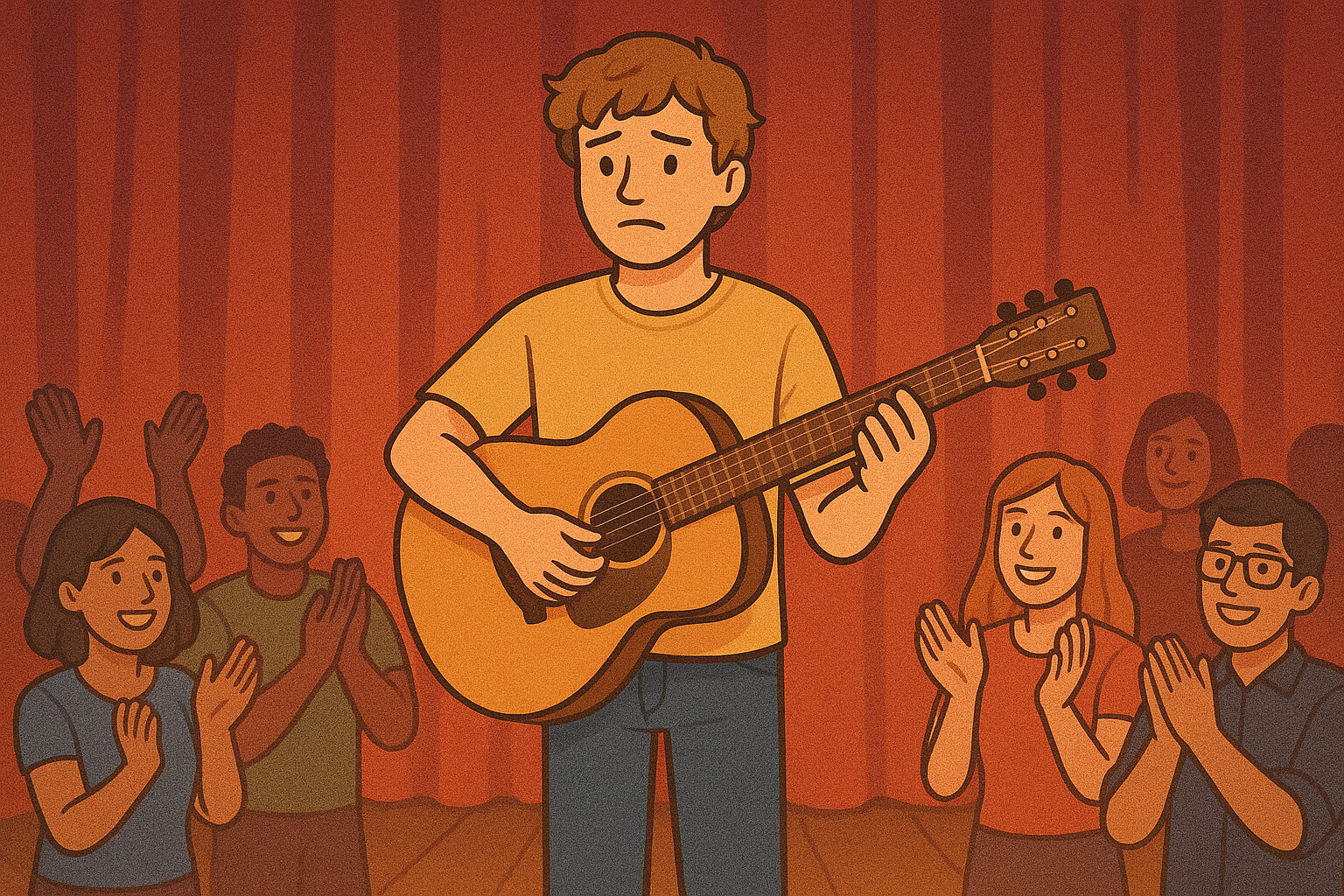August 05, 2025

Stage fright isn’t a sign that you’re not cut out for music—it’s a sign you care. Almost every musician, from garage band rookies to Grammy winners, has felt that rush of nervous energy before stepping into the spotlight.
But here's the truth: stage fright is completely normal—and more importantly, it’s beatable.
With consistent practice, the right mindset, and some smart performance strategies, you can turn that nervousness into focused, confident energy.
Performance anxiety is your brain’s natural response to risk or exposure. It triggers the “fight or flight” mechanism—not because you’re in danger, but because you’re stepping into vulnerability.
The key isn’t to fight it—it’s to reframe it.
"If you're nervous, it means you’re about to do something brave."
Even seasoned artists like Adele and Barbra Streisand have spoken openly about performance anxiety—it doesn’t make you less talented. It makes you human.
Knowing the music isn’t enough. You also need to practice how you perform. That includes how you move, breathe, recover from mistakes, and connect with your audience.
The more you simulate a performance setting, the less shocking it feels when the real moment comes.
Don’t throw yourself into the deep end. Like any skill, performing is a muscle you build—one low-pressure situation at a time.
You’ll be surprised how quickly your comfort zone expands with just a few wins.
Performance anxiety often starts in the body—tight chest, rapid breathing, shaky hands. That’s why breathing techniques and mental rehearsal are so powerful.
Your brain can’t tell the difference between a vividly imagined success and a real one. So visualize wisely.
You will make mistakes. Everyone does. The difference between amateurs and pros is that pros keep going. Most audiences don’t even notice small slip-ups unless you draw attention to them.
Music is about feeling, not flawless execution.
Rituals create mental anchors. By repeating the same routine before each performance, you give your brain a sense of familiarity and calm.
Even a short ritual can help your body switch from anxious to prepared.
One of the most overlooked steps is reflecting afterward. Whether the performance went perfectly or had hiccups, acknowledge your courage and growth.
Overcoming stage fright isn’t a one-time switch—it’s a process. With every performance, no matter how small, you build experience, resilience, and trust in yourself.
What once felt terrifying will soon feel exciting. Eventually, performing becomes less about fear—and more about sharing joy, storytelling, and connection.
So take that first step. The stage doesn’t need a perfect musician. It needs a real one—and that’s exactly who you are.
Stay up to date with the latest tips, expert insights, product reviews, and step-by-step guides to help you grow, create, and succeed—no matter your industry or passion.